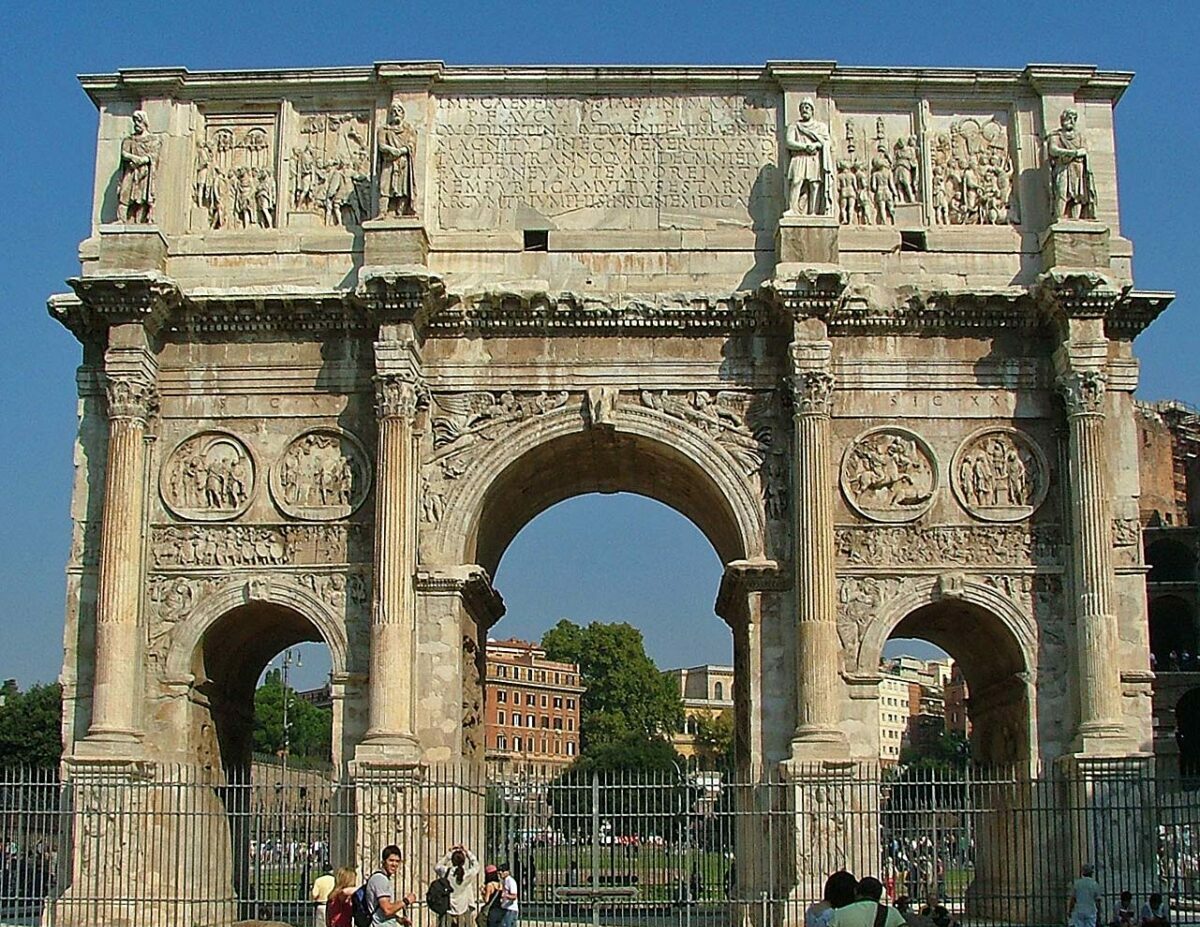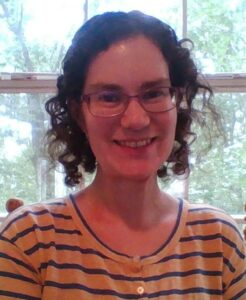“I am going to tell you something strange. It seems ever more to me that there is no time. Everything on earth exists outside of time, otherwise how could I know about the future that has not occurred? I think time is given to us by the grace of God so we will not get mixed up, because a person’s consciousness cannot take in all events at once. We are locked up in time because of our weakness.”
Carrollton, GA. But, I thought, reading this lyrical explanation in contemporary Russian writer Eugene Vodolazkin’s novel Laurus, set in late medieval Russia, historians are better equipped than “regular” people to burst outside of our own time frame. We feel called to rebel against our own time with every fiber of our inquisitive primary-source-loving being. By the very virtue (or flaw) of our vocation, we refuse to dwell—intellectually and emotionally—exclusively in our own time and, I would add, place. We seek urgent answers to questions that we cannot resolve while living solely in the here and now. And so, as we take in events from multiple time periods and places, we become strange conduits of truths that transcend time. We grow both more and less connected to the world around us. And the gateway to all these other worlds we want to understand involves, in very large part, reading voices from the past.
One such voice for me over the past decade has been that of Augustine, especially in his City of God, which deals with these same questions of time and the challenge of living constrained in time that Vodolazkin explores in Laurus. But Augustine wrestles with these questions while processing the greatest trauma of his day: the horrifying sack of Rome by the Visigoths in 410 CE. It was an extremely violent event, and one that made those who lived through it question everything they had thought was true. Laurus tells of the fears of Russians at what they believed was the approaching end of the world in what they calculated as the 7,000th year since Creation. But for Augustine’s contemporaries, the fear was that the end of the world was upon them already. No calculations necessary, when the Goths, those harbingers of the end, rove all around.
In my book that is forthcoming in October, I devote an entire chapter to Augustine and his complex processing of the fall of Rome in City of God as arguably the earliest manifesto we have against religious nationalism, both pagan and Christian. For both pagans and Christians of Augustine’s time, venerating Rome was a built-in aspect of their worldview and a reminder of God’s (or gods’) favor to the eternal city here on earth. We forget, after all, that up until 410 CE, Christianity had always existed in the context of the Roman Empire. And so, perhaps the question of Augustine’s contemporaries, while displaying a lack of faith, should nevertheless make sense: how, they wondered, can Christianity even exist in a world without Rome?
To be fair, Constantine had moved the capital of the Roman Empire to Constantinople eighty years earlier, and for another half a century before then, Rome’s significance as the center of the empire was increasingly more symbolic than practical. And yet, Rome for all alive in the empire in 410 CE was still a symbol of something powerful, something so deeply rooted and ingrained as to be impossible to hack away without losing a piece of one’s very being. Souls mired in idolatry can be tethered to time and space with particularly powerful chains.
Augustine’s response in City of God involves a rewriting of all previous Roman history in order to make a point no other ancient historian, pagan or Christian, had made before him: for Christians, history should not involve just the study of the past. Rather, history can only be told correctly with a future-minded orientation. For we alone, unlike the Roman polytheists, know how it will end.
It is with this same mindset about the relationship of the past and the future that Vodolazkin approaches the stories surrounding the protagonist of his truly stunning novel. Arseny, at times also known as Ustin or Rukinetz, then later on by his monk name of Amvrosiy, and finally by his ascetic name of Laurus, is someone who had from birth been marked by God’s favor in ways others could readily recognize, even if not articulate. From his grandfather, he inherited the healer’s gift, coupled with the ability to see glimpses of the future. But the tragic loss in childbirth of the woman he loved (but did not marry) and their infant son, born dead, haunts his subsequent long life.
This loss drives him all over Russia and beyond to live a life of deliberate suffering, penance, and pilgrimage, until at last, as an old man, he returns to the very region where his life had begun. Above all else, though, his is a life of service to others, of displaying radical mercy and love to those who do not understand these qualities, but need them so desperately as their world goes through cycle after cycle of the devastating all-consuming plague. These are, after all, the Middle Ages, as Vodolazkin is fond of repeating periodically by way of a historian’s refrain.
Vodolazkin’s critical vision of the Medieval Russian past is no different in essence from Augustine’s similarly sharp and un-glamorous vision of Roman history. Augustine’s contemporaries were longing for the glory days of Rome’s past. Yet in response, all he could do was debunk their idealistic narrative of Roman history, show the imperfections of that past in all its ugliness, and point his readers to the perfection of a future with God.
Similarly, in reading Vodolazkin, I am reminded of modern Russia’s tendency to try and glamorize old Rus’, as Russian leaders, most recently Putin, have tried to do. But there is no glory or “Golden Age of man” to be found in the past, no matter how hard one looks. Even in times of prosperity—Edward Gibbon’s dubbing of the second century Roman Empire as the “Happiest Age of Man” comes to mind—there is much cruelty, sins of individuals and of nations, and so much senseless death. Yet for Laurus, through his genuine pursuit of God and his self-giving care to others all around during season after season of the plague, time could no longer be divided into the regular segments of past, present, and future. Instead, “time was coming apart at the seams, like a wayfarer’s traveling bag, and it was showing its contents to the wayfarer, who contemplated them as if for the first time.”
As historians, what are we but aspiring wayfarers of this very sort? For Laurus, this becomes clear as he feels time disappear all around him in his later years, until he only knows the cycle of the weeks and nothing else. Furthermore, he grows to understand this cyclical nature of time and of history through life-long reflections on a book he had read so much as boy, that he memorized it altogether—the Alexander Romance, a fictionalized novel about Alexander the Great. Alexander is a fitting foil to Laurus. Living a very short life, the legendary general thought of nothing but acquiring eternal earthly fame through his conquests, conquests that brought misery to both his own armies and the people he conquered.
In a conversation shortly before Laurus’ death, a young woman pensively asks him: “What a strange life Alexander had. What was the historical goal of his life?” Laurus responds, “Life has no historical goal. Or that is not the main goal. I think Alexander only grasped that right before his death.”





1 comment
Adam Smith
Nadya, you are one my favorite contributors to FPR. Thanks for this piece. I’m intrigued by your forthcoming book!
Comments are closed.